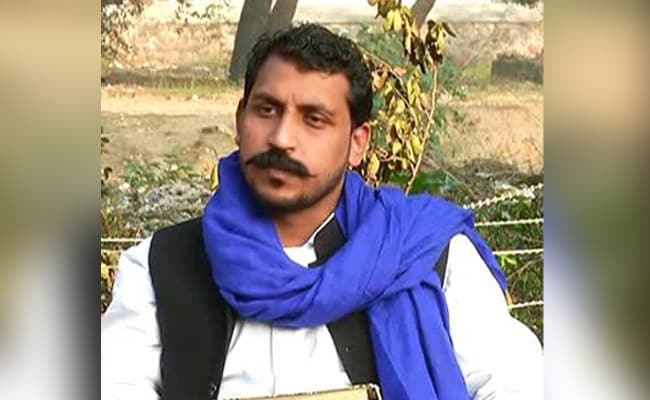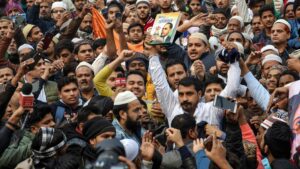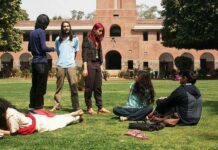As tensions flared during the North Campus protest at Delhi University, a controversial series of events unfolded, resulting in the detention of the Bhim Army Chief and DU students. This incident has sparked a vigorous debate surrounding the rights of protestors and the handling of peaceful assemblies.
Table of Contents
The North Campus Protest Unfolds
Commencing as a peaceful gathering, the North Campus protest aimed to voice support for a former professor facing alleged injustices. However, the situation took a dramatic turn, escalating into a contentious event that caught the attention of many.
Bhim Army Chief’s Detention
Caught in the midst of the North Campus protest, the Bhim Army Chief found himself detained, raising poignant questions about the freedom of expression. Critics argue that peaceful assemblies should be safeguarded, while authorities contend that the protest deviated into unruly territory.
DELHI UNIVERSITY PLACEMENT : LSR STUDENT BAGS 49 LAKH PACKAGE
Delhi University Students in Custody
Simultaneously, alongside the Bhim Army Chief, Delhi University students were taken into custody during the protest. This ignited concerns about the right to dissent and the management of student-led movements within the academic setting.
Public Outcry and Social Media Debates
The detention of the Bhim Army Chief and DU students triggered a wave of public outcry, amplifying debates across social media platforms. Many argue that such incidents hinder the democratic right to protest, prompting a reassessment of law enforcement practices during peaceful assemblies.
Legal Implications
A closer look at the legal aspects of the protest reveals questions about the right to peaceful assembly and freedom of expression. Legal experts weigh in on whether the detentions were justified or constituted an infringement on fundamental rights.
The Role of Authorities
Maintaining that the protest escalated beyond peaceful expression, authorities justify the detentions. Questions arise about the delicate balance between maintaining order and respecting the right to protest, prompting discussions on the role of law enforcement in such scenarios.
Student Activism and Expression
The protest sheds light on the role of student activism and the importance of allowing young voices to be heard. Supporters argue that universities should be spaces for free expression, fostering a culture of open dialogue and constructive dissent.
Impact on Academic Environment
The incident at Delhi University’s North Campus has raised valid concerns about the impact on the academic environment. Worries linger about potential discouragement of students from engaging in activism and expressing dissent on campus.
FASHION IN DELHI UNIVERSITY GUIDE, FOR FRESHERS GIRLS : 2021
Calls for Transparency and Reform
In the aftermath of the North Campus protest, there are fervent calls for transparency in handling demonstrations. Advocates emphasize the necessity for clear guidelines to prevent potential misuse of power by authorities during peaceful assemblies, fostering an environment of trust and accountability.
Conclusion
The North Campus protest, marked by the detention of the Bhim Army Chief and DU students, has ignited a crucial conversation about the balance between maintaining order and upholding the right to peaceful assembly. As debates continue, there is a growing consensus on the need for transparency, respect for fundamental rights, and fostering an environment that encourages student activism and expression on university campuses.














